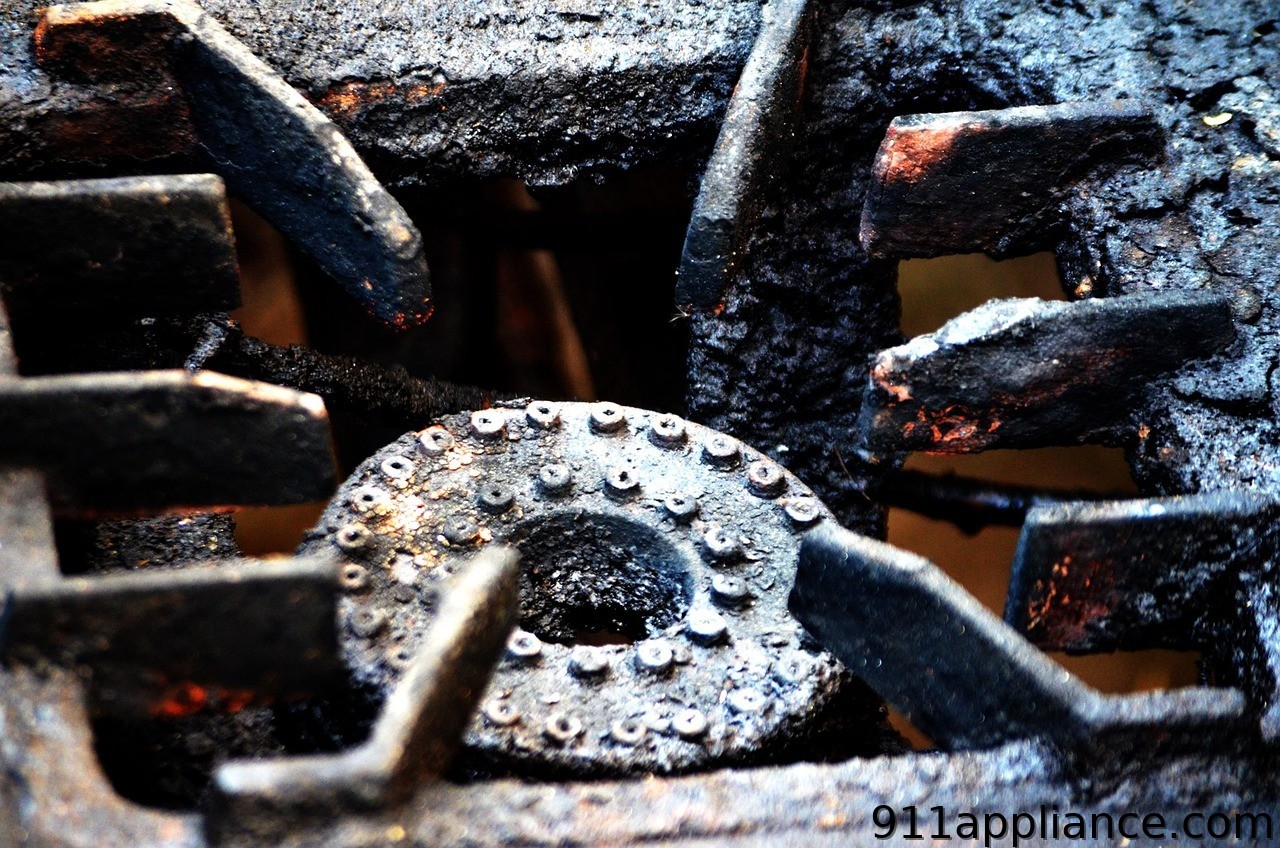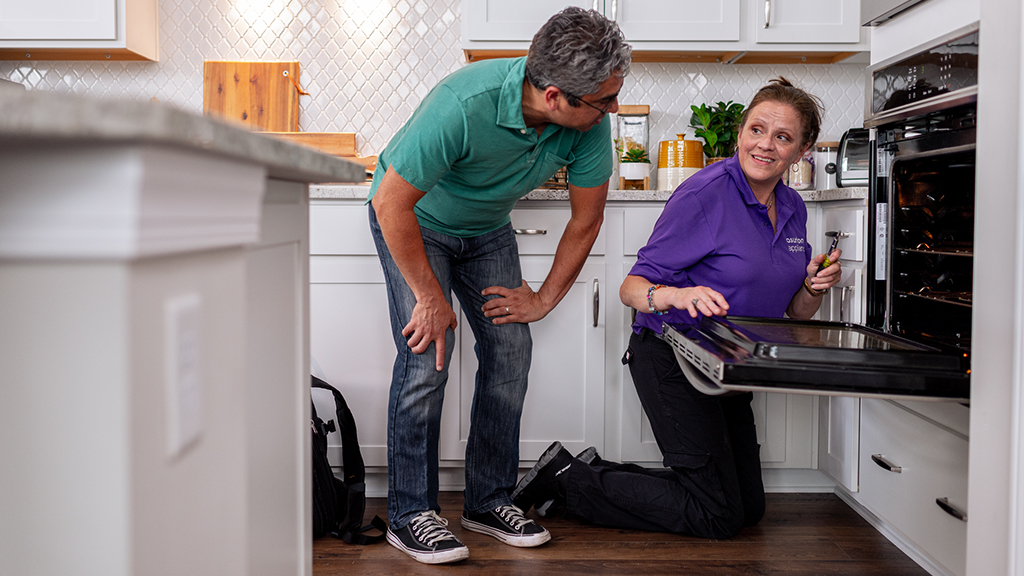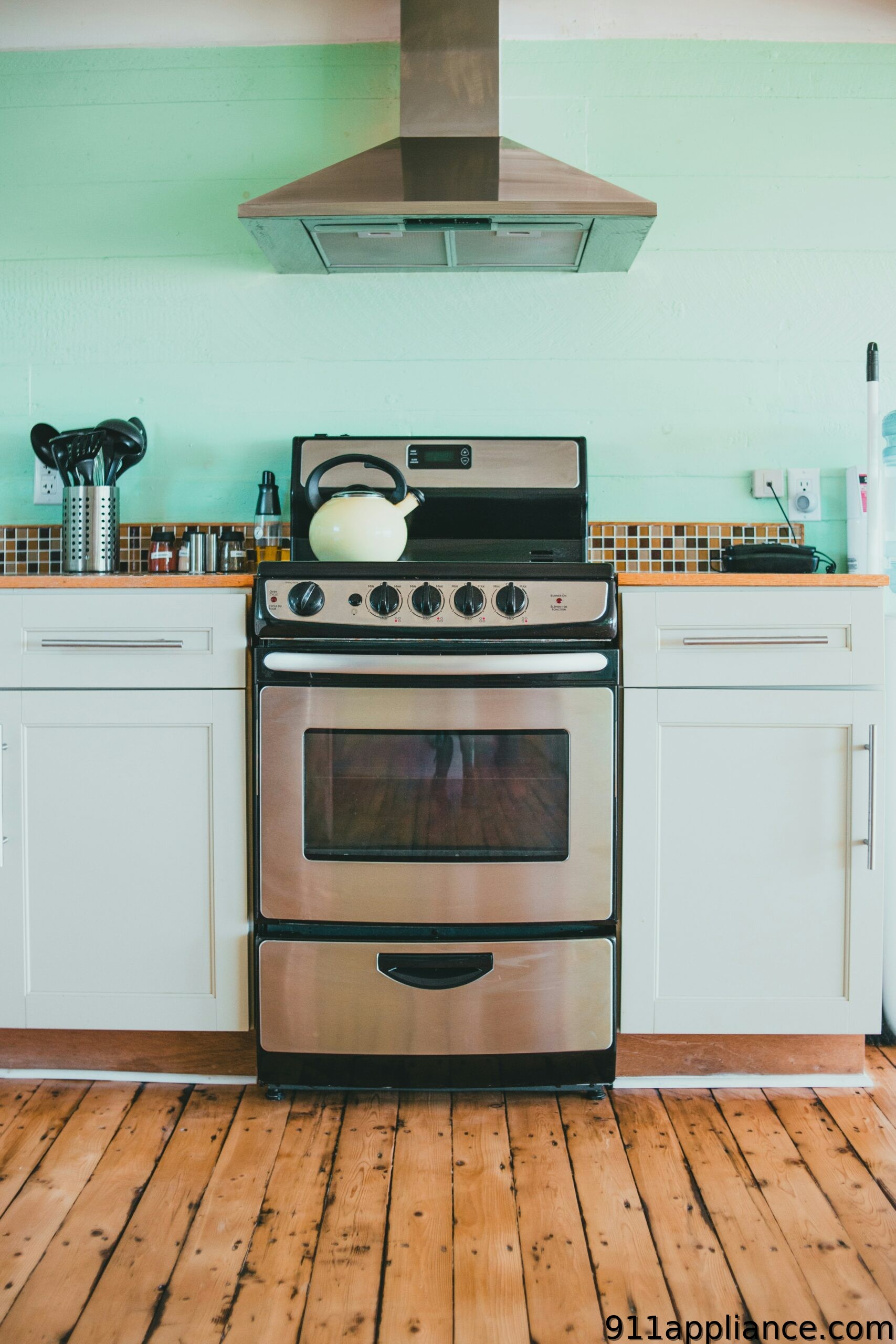Regular appliance maintenance is crucial for the longevity and efficiency of your household appliances. By taking the time to properly clean and maintain your appliances, you can save money in the long run and avoid costly repairs. Neglecting maintenance can lead to a decrease in performance, increased energy consumption, and even potential safety hazards.
When appliances are not properly maintained, they can become less efficient and require more energy to operate. This can result in higher utility bills and unnecessary expenses. Additionally, neglecting maintenance can lead to more serious issues that may require costly repairs or even replacement of the appliance.
Table of Contents
- Key Takeaways
- How to Keep Your Dishwasher Running Smoothly
- Maintaining Your Oven and Stovetop
- Tips for Maintaining Your Microwave
- Keeping Your Washing Machine in Good Condition
- Dryer Maintenance: What You Need to Know
- Maintaining Small Appliances: Coffee Makers, Toasters, and More
- Common Appliance Problems and How to Fix Them
- When to Call a Professional for Appliance Maintenance
- What Regular Maintenance Should I Perform on My Appliances According to the Seasonal Maintenance Checklists?
- What are the benefits of regular maintenance for appliances compared to just regular cleaning?
- FAQs
- What is regular maintenance for appliances?
- Why is regular maintenance important for appliances?
- What are some common maintenance tasks for appliances?
- How often should appliances be maintained?
- What are some tips for maintaining appliances?
- What are the benefits of regular appliance maintenance?
Key Takeaways
- Regular appliance maintenance is important to ensure their longevity and efficiency.
- Clean your refrigerator regularly to prevent food contamination and odors.
- Keep your dishwasher running smoothly by cleaning the filter and checking the spray arms.
- Maintain your oven and stovetop by cleaning spills immediately and checking the burners.
- Clean your microwave regularly and avoid using metal or aluminum foil inside.
- Keep your washing machine in good condition by cleaning the lint filter and checking the hoses.
- Regularly clean the lint trap and exhaust vent of your dryer to prevent fire hazards.
- Maintain small appliances like coffee makers and toasters by cleaning them regularly and checking for wear and tear.
- Common appliance problems like leaks and strange noises can often be fixed by troubleshooting or replacing parts.
- Call a professional for appliance maintenance if you are unsure or if the problem requires specialized knowledge or tools.
Cleaning Tips for Your Refrigerator
Cleaning your refrigerator regularly is essential for maintaining its performance and preventing odors. Start by removing all the food items from the refrigerator and discarding any expired or spoiled items. Then, wipe down the interior of the refrigerator with a mixture of warm water and mild detergent. Pay special attention to spills and stains, as they can harbor bacteria and cause odors.
Next, clean the exterior of the refrigerator using a soft cloth or sponge and a mild cleaner. Be sure to clean the door handles, as they can accumulate dirt and grime over time. Finally, don’t forget to clean the coils at the back of the refrigerator. Dust and debris can accumulate on the coils, causing them to work harder and reducing their efficiency. Use a vacuum cleaner or a coil brush to remove any dirt or dust.
It is recommended to clean your refrigerator at least once every three months. However, if you notice any spills or stains, it’s best to clean them up immediately to prevent them from becoming more difficult to remove.
How to Keep Your Dishwasher Running Smoothly
To keep your dishwasher running smoothly, it’s important to clean it regularly. Start by removing any food debris from the bottom of the dishwasher and wiping down the interior with a damp cloth. Pay special attention to the door gasket, as it can accumulate dirt and grime over time.
Next, remove the filter from the dishwasher and clean it thoroughly. The filter is responsible for trapping food particles and preventing them from clogging the drain. Rinse the filter under running water to remove any debris, and use a soft brush to scrub away any stubborn stains.
It is recommended to clean your dishwasher at least once a month. However, if you notice any odors or buildup, it’s best to clean it more frequently.
Maintaining Your Oven and Stovetop
Cleaning your oven and stovetop regularly is important for maintaining their performance and preventing food buildup. Start by removing any loose debris from the oven and stovetop using a brush or vacuum cleaner. Then, wipe down the surfaces with a mixture of warm water and mild detergent.
For stubborn stains or burnt-on food, you can use a paste made of baking soda and water. Apply the paste to the stains and let it sit for a few minutes before scrubbing it away with a sponge or cloth. Be sure to rinse the surfaces thoroughly to remove any residue.
Don’t forget to clean the burners and oven racks as well. Remove them from the oven or stovetop and soak them in warm soapy water for a few minutes. Scrub away any stains or debris using a sponge or brush, and rinse them thoroughly before placing them back in the oven or stovetop.
It is recommended to clean your oven and stovetop at least once every three months. However, if you notice any spills or stains, it’s best to clean them up immediately to prevent them from becoming more difficult to remove.
Tips for Maintaining Your Microwave
Cleaning your microwave regularly is important for maintaining its performance and preventing odors. Start by removing any food debris from the interior of the microwave using a damp cloth or sponge. Pay special attention to any spills or stains, as they can become more difficult to remove over time.
Next, remove the turntable and wash it in warm soapy water. Scrub away any stains or debris using a sponge or brush, and rinse it thoroughly before placing it back in the microwave. Be sure to also wipe down the interior of the microwave door and control panel.
To remove any stubborn stains or odors, you can place a bowl of water with a few tablespoons of lemon juice or vinegar in the microwave and heat it for a few minutes. The steam will help loosen any stains or odors, making them easier to wipe away.
It is recommended to clean your microwave at least once a month. However, if you notice any spills or stains, it’s best to clean them up immediately to prevent them from becoming more difficult to remove.
Keeping Your Washing Machine in Good Condition
Cleaning your washing machine regularly is important for maintaining its performance and preventing odors. Start by running an empty cycle with hot water and a cup of white vinegar. This will help remove any buildup or residue inside the machine.
Next, wipe down the interior of the washing machine with a damp cloth or sponge. Pay special attention to the door gasket and detergent dispenser, as they can accumulate dirt and grime over time.
Don’t forget to clean the lint filter as well. The lint filter is responsible for trapping lint and debris from your clothes, preventing them from clogging the drain. Remove the lint filter from the washing machine and rinse it under running water to remove any lint or debris.
It is recommended to clean your washing machine at least once every three months. However, if you notice any odors or buildup, it’s best to clean it more frequently.
Dryer Maintenance: What You Need to Know
Cleaning your dryer regularly is important for maintaining its performance and preventing fire hazards. Start by cleaning the lint trap after every load of laundry. Remove any lint or debris from the lint trap using your fingers or a brush. This will help improve airflow and prevent the dryer from overheating.
Next, clean the dryer vent at least once a year. The dryer vent is responsible for removing hot air and moisture from the dryer. Over time, lint and debris can accumulate in the vent, reducing its efficiency and increasing the risk of a fire. Use a vacuum cleaner or a vent brush to remove any lint or debris from the vent.
It is recommended to clean your dryer vent at least once a year. However, if you notice that your clothes are taking longer to dry or that the dryer is overheating, it’s best to clean the vent more frequently.
Maintaining Small Appliances: Coffee Makers, Toasters, and More
Cleaning your small appliances regularly is important for maintaining their performance and preventing odors. Start by unplugging the appliance and wiping down the exterior with a damp cloth or sponge. Pay special attention to any spills or stains, as they can become more difficult to remove over time.
Next, clean the parts that come in contact with food or drink. For coffee makers, run a cycle with equal parts water and white vinegar to remove any buildup or residue. For toasters, remove the crumb tray and empty it into the trash. Wipe down the interior of the toaster with a damp cloth or sponge to remove any crumbs or debris.
It is recommended to clean your small appliances at least once a month. However, if you notice any spills or stains, it’s best to clean them up immediately to prevent them from becoming more difficult to remove.
Common Appliance Problems and How to Fix Them
Common appliance problems can range from minor issues that you can fix yourself to more serious problems that require professional assistance. Some common problems include appliances not turning on, not heating or cooling properly, making strange noises, or leaking.
If your appliance is not turning on, check to make sure that it is properly plugged in and that the circuit breaker has not tripped. If the appliance is still not working, it may be a problem with the power supply or the appliance itself. In this case, it’s best to call a professional for assistance.
If your appliance is not heating or cooling properly, check to make sure that the temperature settings are correct and that the vents are not blocked. If the problem persists, it may be a problem with the thermostat or the compressor. Again, it’s best to call a professional for assistance.
If your appliance is making strange noises, check to make sure that there are no loose parts or debris inside the appliance. If the noise continues, it may be a problem with the motor or another internal component. Once again, it’s best to call a professional for assistance.
If your appliance is leaking, check to make sure that all the connections are secure and that there are no visible cracks or damage. If the leak continues, it may be a problem with the water supply or a faulty seal. It’s best to call a professional for assistance in this case as well.
When to Call a Professional for Appliance Maintenance
While regular maintenance can help prevent many common appliance problems, there are times when it’s best to call a professional for assistance. If you’re unsure about how to properly clean or maintain your appliances, it’s always better to seek professional help rather than risk causing further damage.
Additionally, if you’re experiencing any major issues with your appliances such as electrical problems, leaks, or unusual noises, it’s best to call a professional right away. They have the knowledge and expertise to diagnose and repair these types of problems safely and efficiently.
When hiring a professional for appliance maintenance or repairs, it’s important to find a reputable company. Look for companies that are licensed, insured, and have positive reviews from previous customers. You can also ask for recommendations from friends, family, or neighbors who have had similar work done.
Regular appliance maintenance is essential for the longevity and efficiency of your household appliances. By taking the time to properly clean and maintain your appliances, you can save money in the long run and avoid costly repairs. From cleaning your refrigerator and dishwasher to maintaining your oven and stovetop, there are many steps you can take to keep your appliances running smoothly.
Don’t neglect the smaller appliances either, as they also require regular cleaning and maintenance. By following these tips and guidelines, you can ensure that your appliances continue to perform at their best for years to come.
Take action today and start maintaining your appliances. Your wallet will thank you, and you’ll enjoy the peace of mind that comes with knowing your appliances are in good working order. And don’t forget to share your own appliance maintenance tips in the comments section below!
What Regular Maintenance Should I Perform on My Appliances According to the Seasonal Maintenance Checklists?
When it comes to maintaining your appliances, following seasonal appliance maintenance checklists is essential. In the spring, make sure to clean your air conditioner filters and check for any leaks. In the fall, focus on cleaning your heater and ensuring it is working properly. Regular maintenance can extend the life of your appliances.
What are the benefits of regular maintenance for appliances compared to just regular cleaning?
Regular maintenance for appliances is crucial for their longevity and optimal performance. While regular cleaning is important, scheduled maintenance helps identify and prevent potential issues before they become major problems. By prioritizing appliance regular cleaning importance, you can save money on costly repairs and extend the lifespan of your appliances.
FAQs
What is regular maintenance for appliances?
Regular maintenance for appliances refers to the routine cleaning, inspection, and repair of appliances to ensure their optimal performance and longevity.
Why is regular maintenance important for appliances?
Regular maintenance is important for appliances because it helps prevent breakdowns, extends their lifespan, and ensures their safety and efficiency.
What are some common maintenance tasks for appliances?
Common maintenance tasks for appliances include cleaning the interior and exterior, checking for leaks or damage, replacing filters, lubricating moving parts, and testing the performance.
How often should appliances be maintained?
The frequency of maintenance for appliances depends on the type of appliance and its usage. Generally, appliances should be maintained at least once a year, but some may require more frequent maintenance.
What are some tips for maintaining appliances?
Some tips for maintaining appliances include reading the manufacturer’s instructions, using the right cleaning products, avoiding overloading or overheating, and scheduling regular professional maintenance.
What are the benefits of regular appliance maintenance?
The benefits of regular appliance maintenance include improved performance, increased lifespan, reduced energy consumption, lower repair costs, and enhanced safety.



